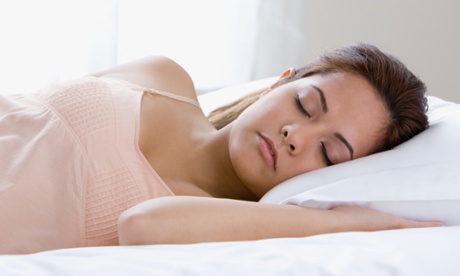
Do you spend your life constantly wishing you had just a little bit more time?
When Canadian science writer Jessa Gamble offers people the prospect of more time, reactions are often mixed. Some say they wouldn’t know what to do with themselves; that they’d be “bored”.
“But then there are others who know exactly what they’d do,” Gamble says. “They have goals that would take them seven lifetimes to achieve.”
We’re not talking about getting any older or living any longer than we do now. Instead, Gamble is researching an “environmentally friendly way of extending your lifespan”. It proposes taking the hours you spend sleeping and adding them to your waking life. “You’ve already eaten what you’d need to eat, you’ve paid your rent - all of these overheads have been covered,” she explains.
So for those struggling to adjust the work-life balance, this might sound rather exciting. It probably won’t be as radical as eliminating sleep altogether. But with the help of science, we might be able to reduce our sleeping time by making it higher quality and more efficient.
Although we spend a third of our lives sleeping, we don’t seem to be very good at it. Compared to the targeted technologies and elaborate regimes we’ve got for exercise and diet, Gamble says, “Sleep is one of these areas we seem to leave to chance. We go to bed and close our eyes and hope for the best. I think we can do better than that.”
Even if you get enough of it, you might not be getting the right kind of sleep. The deepest and most restorative sleep occurs in stages three and four. REM sleep, the stage at which most dreaming takes place, happens just after stage four and resembles the waking brain in many ways. Certain parts of the brain – especially the limbic system, which deals with emotions – are more active than they might normally be. Other areas are even hyperactive during dreaming, such as that very helpful part of the brain that makes you feel like you’ve made a mistake. “If you let stage one and two go and were only in three and four, and then a bit of REM, you’d be golden,” Gamble says.
There are technologies and drugs out there to reduce the need for sleep. Unsurprisingly, many are driven by the military and are not particularly safe or sustainable, such as stimulants used by soldiers to stay awake for long stretches of time, which have led to friendly-fire incidents. There’s even an FDA-approved transcranial direct-current stimulation device you can use in your own home that’s meant to treat insomnia (before you rush off to buy one, this is not something Gamble recommends).
As we get older, the amplitudes of our circadian cycles gets smaller. “It’s quite possible that the cognitive decline we see in adults as they age could be accounted for largely by the fact that their sleep quality is lower,” says Gamble.
Some are convinced that the suprachiasmatic nucleus (the master clock in the brain) is the “fountain of youth”, holding the key to immortality. Sleep is, after all, the most powerful cognitive enhancer we know of: Thatcher’s “sleep is for wimps” might not be the best motto to live by.
So what can we be doing to get better sleep now? First of all, get your room as dark as possible, ideally to less than eight lux, which means you shouldn’t be able to see the other side of the room. Blue or full-spectrum light trick the suprachiasmatic nucleus into thinking it’s daytime, so try to avoid reaching for your smartphone to check the time in the middle of the night.
Warming your feet before bed can reduce the length of time it takes to fall asleep by about two minutes. Smart beds are available, such as Luna, a mattress cover that manages the temperature of your bed. The Sleep cycle alarm clock app will wake you up when you’re at your lightest sleep cycle, the idea being that you’ll feel less groggy.
For frequent flyers, Virgin’s Jet Leg Fighter app (available in the US only) calculates how you should transition between timezones. It’s more than a matter of time difference: there are mornings where you should avoid light, and times when you should exercise.
Women are more likely to be early risers, while men tend towards being more active later in the day. Night owls have a longer free running cycle compared to early risers, which means if put in a cave without external cues, they’d natural sleep increasingly later and later in the day. If you’re a night owl forced to suffer the indignity of early morning starts, get outside as soon as possible. According to Gamble, this means you’ll be able to sleep at a reasonable hour at night.
But for those who aren’t bound by conventional schedules (freelancers, perhaps) there’s something else you can try. Before the advent of artificial light, we had what was called first and second sleep. Our ancestors would go to sleep a couple of hours after dusk and wake up in the middle of the night “in a sort of biological state that we don’t experience now” involving high levels of prolactin, a hormone commonly associated with feelings of peacefulness and relaxation. It was a time of “meditative quiet” in which we’d pray, reflect, and spend time with family and neighbours before going back to sleep and waking up again around dawn. Some believe these midnight hours are conducive to creativity.
Studies have shown positive effects. “Subjects woke up and said that it was the first time that they really understood what it was to be awake,” Gamble says.
“Can you imagine discovering in the middle of your life that you’ve just woken up for real? That’s what I hope for everyone.”
Jessa Gamble is one of the Libertine 100 and will be speaking in West London on May 26.

